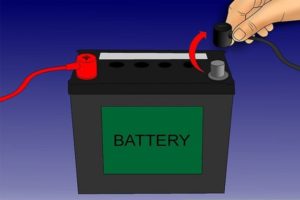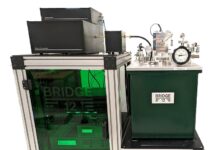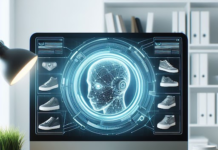
BioSolar, Inc. (“BioSolar” or the “Company”), a developer of breakthrough energy storage technology and materials, today highlighted the potential impact of its silicon anode additive technology. This new technology may enable widespread commercialization of Silicon (Si) anodes made from lower cost Si micro-particle materials, as opposed to Si-nano-particles, to fill the need for advanced batteries in many emerging market sectors.
The industry standard for Si anodes currently uses Si nano-particles, but the difficulty of manufacturing raw Si nano-particle materials remains a costly challenge. In contrast, Si micro-particles are easier to manufacture at a significantly lower cost. Unfortunately, anodes made from Si micro-particles are more prone to damage during battery charging and discharging due to volume expansion, thus not yet commercially viable. BioSolar’s innovative additive technology is designed to solve this problem.
Last year, BioSolar announced that its additive technology exhibited significant improvement in battery capacity and capacity retention when applied to Si anodes made from Si micro-particles. Following the announcement, the Company has received numerous inquiries from battery material suppliers worldwide that have been working on Si micro-particle anodes.
The company’s technical advances come at an opportune time in the rapidly growing battery market. This week, Ford Motors announced that it plans to invest up to $11 billion by 2020 with 40 hybrid and fully electric vehicles in its model lineup. This commitment from a major automotive manufacturer follows Volkswagen’s decision to spend $40 billion on electric cars, autonomous driving and new mobility services by the end of 2022 – significantly more than when it announced two months earlier it would invest more than 20 billion euros on electric and self-driving cars through 2030.
To enable mass-market applications such as electric vehicles, cost must be lower and capacity must be higher. Silicon anodes hold great potential in achieving these objectives, which is why it is heavily researched around the world. BioSolar believes its additive technology, when more fully developed and reviewed by industry experts and scientific peers, represents a breakthrough solution for this growing unmet need.
“The number and type of industry players that contacted us regarding our additive technology was surprising, and also confirmed for us that we are on the right path,” said Dr. David Lee, CEO of BioSolar. “Our additive technology is one we believe solves a fundamental challenge in how to significantly increase the capacity and lower the cost of lithium ion batteries using silicon anodes. We are quite encouraged by the positive interest we’ve received from battery material suppliers regarding our additive technology and we look forward to exploring market opportunities with them.”
To know more visit http://www.biosolar.com.


















